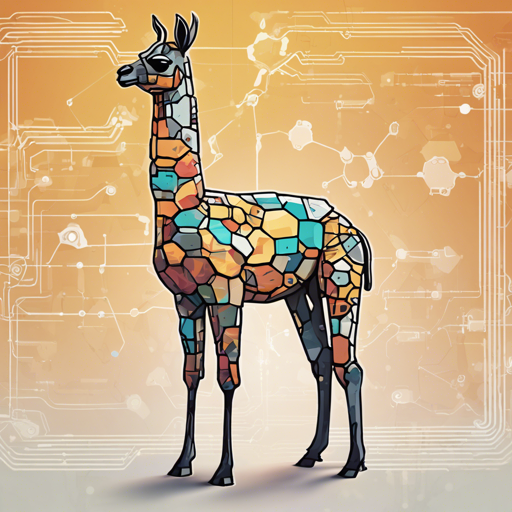Welcome to the fascinating world of Llama-3-Giraffe-70B, a remarkable AI model brought to life by Abacus.AI. Imagine a towering giraffe that can reach the highest leaves with ease, this model underscores scalability and contextual understanding with its effective context length of approximately 128,000 tokens. Let’s dive into a guide on how to leverage this advanced model effectively.
Understanding the Giants: Llama-3-Giraffe-70B Overview
Llama-3-Giraffe-70B isn’t just any model; it has been rigorously trained on around 1 billion tokens. This initial release embodies the pinnacle of text generation models that can handle extensive inputs. Its impressive framework incorporates cutting-edge methodologies that ensure optimal performance.
Training Methodology
The training process of Llama-3-Giraffe-70B employs several innovative techniques:
- PoSE (Positional Skip-wise Training): This enhances training efficiency through strategic positional sampling.
- Dynamic NTK Interpolation: The model utilizes NTK (Neural Tangent Kernel) scaling with a scale factor of 4 for better learning convergence.
- Data Source: The training employs long samples of an average of 8K tokens from the RedPajama dataset.
- Hardware Utilized: Training took place on 8xH100 GPUs, complemented by Deepspeed Zero Stage 3 for optimal process handling.
Performing Evaluation
Once training is completed, evaluating the model is crucial to validate its effectiveness. Llama-3-Giraffe-70B employs the EasyContext implementation via ‘Needle-in-a-Haystack’, allowing it to methodically assess performance. The evaluation settings include:
- Minimum Context Length: 2000 tokens
- Maximum Context Length: 128000 tokens
- Context Interval: 4000 tokens
- Depth Interval: 0.1
- Sample Count: 2
- Random Number Digits: 7
- Haystack Directory: Paul Graham Essays
Using Llama-3-Giraffe-70B: A Practical Analogy
Think of Llama-3-Giraffe-70B as an intelligent library assistant. Imagine a huge library with thousands of books (data tokens) from which this assistant learns. It organizes information in such a way that when you ask for a story or report about a particular topic, it can reach far beyond the general shelves and find detailed, specific insights from the highest corners of its shelves (context length of 128k). Just like how an assistant recalls the exact location of a book based on detailed cues (PoSE), our AI uses its methods to generate the most relevant outputs for a given input.
Troubleshooting
While experimenting with Llama-3-Giraffe-70B, you might run into some common issues. Here are some ideas to troubleshoot effectively:
- Issue: Model not performing as expected
- Check the data feeding into the model; ensure it matches the training parameters.
- Experiment with different evaluation parameters to assess performance variability.
- Issue: Long execution times
- Evaluate the hardware specifications and the load on your resources to ensure optimal performance.
- Consider distributing the workload more evenly if operating with limited computational resources.
For more insights, updates, or to collaborate on AI development projects, stay connected with fxis.ai.
In Conclusion
At fxis.ai, we believe that such advancements are crucial for the future of AI, as they enable more comprehensive and effective solutions. Our team is continually exploring new methodologies to push the envelope in artificial intelligence, ensuring that our clients benefit from the latest technological innovations.

